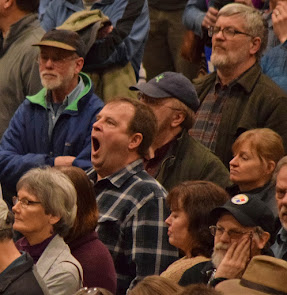By now, you can no doubt tell a bit about what I like from the topics I write about.
I love words. I relish language. I eat metaphors for breakfast. And I believe you can never have enough cartoons.
So, instead of the regular post, I bring you a state of Wordly Explorations - with words, language, metaphor and cartoon.
This toon by SMCB is one of my favourites. It says everything I've tried to say in my thousands of words, ridiculously long posts and endless series. Only considerably more nimbly and gracefully, which is appropriate given the content of the cartoon.
As SMBC says, 'Language is like gymnastics' (simile, sure, not metaphor, but good enough when you're pressed for time) works for the conflicting prescriptivist, descriptivist and pragmatist perspectives. That's a simile doing overtime!
Language is like gymnastics. There are rules and standards and those who fail to follow them should be chastised.
Language is like gymnastics! There are lots of forms and none is preferable to any other.
Language is like gymnastic. There isn't a best gymnastics, but most of you are really, really shitty at gymnastics.
I agree with all that, but today I have a different take. Let's call it the language 'performativist' perspective.
Language is like gymnastics. There's performance anxiety; there's pain and sometimes injury in the process of nailing the 'position' you are working on.
It's hard to focus on your goal on the parallel bars, when you can't even get to the gym due to everything else happening in your life. The coach yells at you about discipline and dedication, but gymnastics is not the only thing in your life. It's not dedication you lack, but days with more than 24 hours!
Sometimes, despite trying your best, you just lose your grip, miss the bar, and you don't get a post written.
Your eyes go wide, you feel fear as you realise what is about to happen, then you fall down hard on your backside.
You get up, and things are still okay.
And you take another run up and hope you'll get it next time.

















